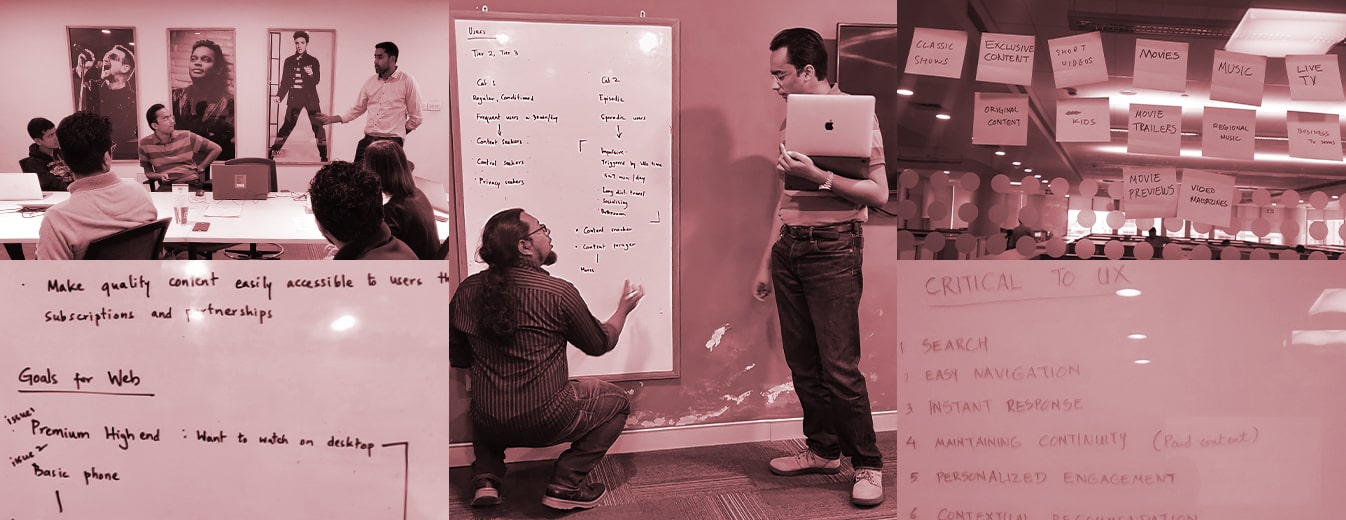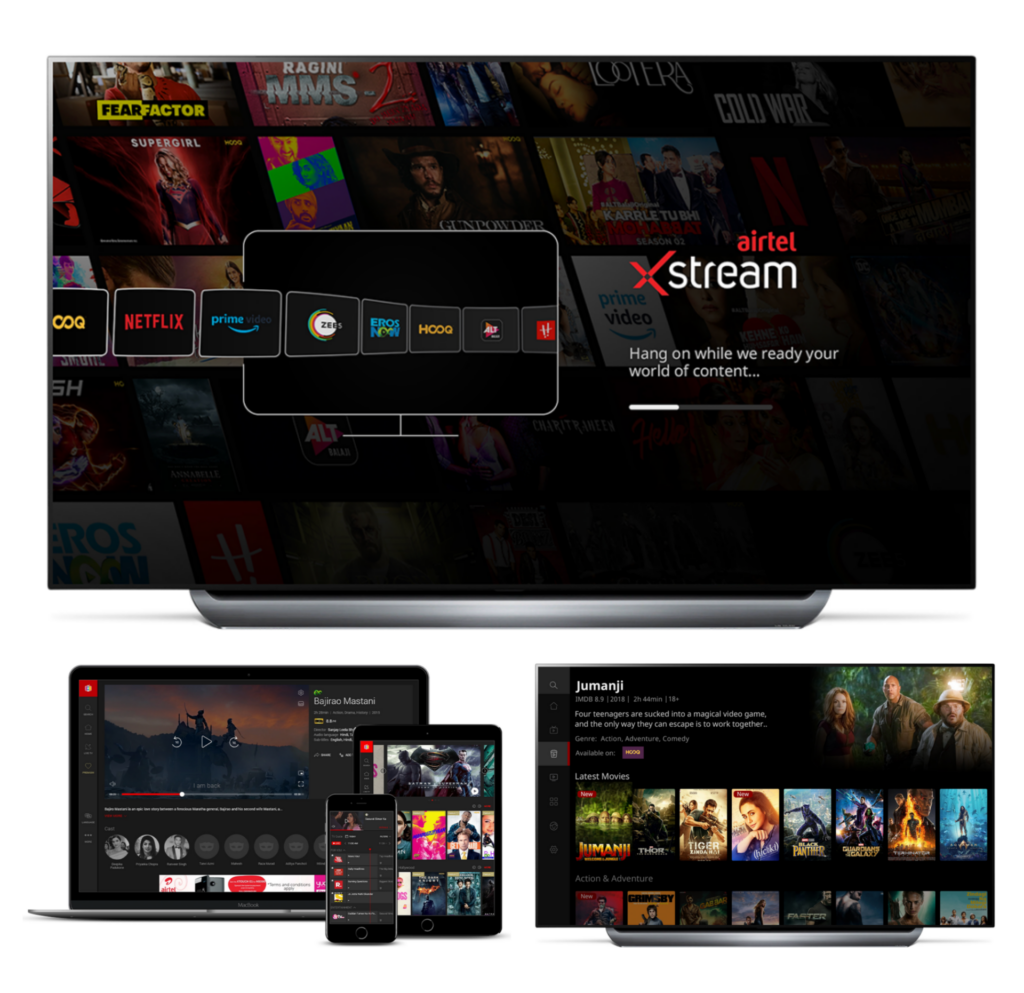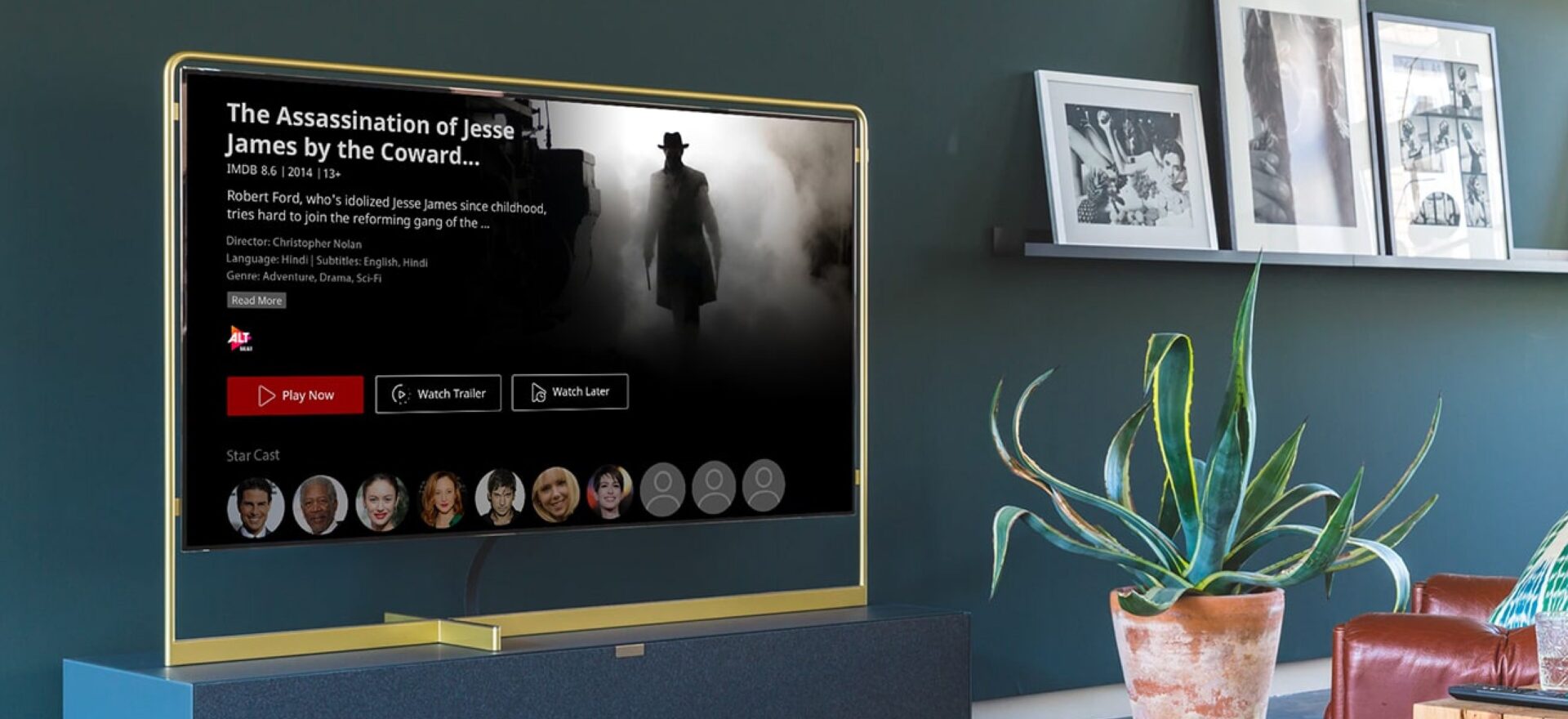Our Strategy
The Thinker Approach
We commenced the OTT app UX design project, by aligning ourselves with all stakeholders to ensure seamless collaboration. In fact, it was only after conducting a workshop to understand Airtel’s current product, vision, and challenges, that we set a common vision and initiated building different platforms ground up.
Airtel had taken it upon itself to conduct primary research to evaluate the landscape and come up with insights. We adopted the personas they had created and utilized the same when coming up with design strategies.
We conducted an extensive competition and benchmark study to ensure we not only cover the older habits of users that are used to a TV system but also understand OTT subscription and onboarding UX patterns.
Insights We Drew/ Insights Inferred
On reviewing the detailed personas, the Airtel team had come up with for its target group, we realized that the bouquet of products offered is directed towards users who are familiar with OTT subscription and onboarding UX patterns as well as dedicated TV viewers. This helped us design the features precisely catering to their needs.

Key Strategic Interventions
Collective Viewing Environment
Making a cohesive ecosystem for the OTT app UX design that allows users to manage all subscriptions and access live TV altogether, for Airtel to be a go-to choice for users looking for entertainment media.
Asset Mosaic Layout
KEY FEATURES
01
HDMI Dongle Onboarding & Multi-OTT Subscription UX
For Airtel XStream, quick onboarding was made possible via a mobile app and a cart-like single payment flow for multiple OTT apps was maintained. Integration of Wynk music content was incorporated along with the power of voice-based search enabled via Google Assistant.
02
Hybrid Set-Top Box: EPG Design & Remote-First Navigation
Standardization of the grid across EPG, Zap, and Settings was incorporated along with providing profile support for channels and favorites. Dual-band transponder-based recording support was also included to allow the users to view a channel while recording another.
03
Progressive Web App: Adaptive Player UX Across Devices
The player UI was designed to adapt to any device on which the content is consumed. The controls on the player were also designed to vary when viewed from different devices. Two-sided usage was also accommodated for ambidextrous users on mobile devices.
MiniPlayer was integrated into EPG for the Live TV section of the app. This allowed users to not lose the context of ongoing content even while they browsed for something else. Quick and seamless switching was made possible here once the user chooses to view another media.
04
Multiscreen OTT Platform: Android TV & Mobile App Design
The app, just like the progressive web app, was designed to modernize the viewing experience while retaining the essence of TV. The overall look was that of an OTT platform while the user enjoyed access to live TV.

DESIGN ACTIVITIES
Consulting
Product
Definition
Strategic UX Design
Visual system
Front End Development
Dev. Coordination
Product Impact & Outcomes
The entire entertainment ecosystem of Airtel XStream was launched in September, 2019 pan India.



